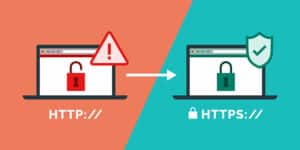Every day, hackers and cyber criminals and their attacks are more sophisticated. You are putting your business at risk if your e-commerce store is not equipped with state-of-the-art security features. Luckily, e-commerce security is much more straightforward and accessible today than it has been in the past.
Web Application Firewall (WAF)
A Web Application Firewall (WAF) is a web security system that monitors the traffic to and from your website. A WAF will monitor your site for malicious activity, and automatically block attackers. The main benefit of using a WAF is that it can protect you from many different types of attacks, including:
- Cross-site scripting (XSS)
- SQL injection
- Remote file inclusion (RFI)
- Remote command execution (RCX)
A WAF can’t do everything when it comes to protecting e-commerce stores, but if used correctly and implemented well, it can provide very effective protection.
Mvestor Recommendation: Cloudflare WAF
Anti-Robot / CAPTCHA

In order for bots not be able to virtually impersonate us online under false pretenses simply by copying what we see or hear onto their computers through various means such as taking screenshots from our monitors using cameras installed inside laptops themselves! The easiest way around this problem would therefore be requiring people who register accounts with us through these types of interfaces first prove they aren’t bots before continuing the registration process successfully.
Mvestor Recommendation: Google ReCaptcha
SSL/TLS certificates

An SSL certificate is a digital credential that verifies the ownership of a domain name. It also shows that your website has been verified in order to conduct online transactions safely with customers or clients. If you have an SSL certificate installed, it means that any sensitive data sent over the internet between your customers’ browser and server will be encrypted so no one else can read it (or inject malware into their browsers).
The best way to get an SSL certificate is through your hosting provider. Hosting companies typically offer this service as part of their packages at no extra charge (e.g., Shopify Plus). However, if you have another provider such as BigCommerce or WooCommerce then these extensions can be purchased for around $50 per year depending on which type of plan you’re using.
Mvestor Recommendation: LetsEncrypt
3rd party processors (Stripe, Authorize.net, Clearent)
You might be wondering why you should use a 3rd party processor to handle your payments instead of keeping everything in-house. There are many reasons to do so, but perhaps the most important is PCI compliance, an indication of your e-commerce security. If you’re not familiar with this term, it refers to the Payment Card Industry Data Security Standards (PCI DSS) which establishes security standards for organizations that process, store or transmit any sensitive card holder data.
One huge benefit of using a 3rd party processor such as Stripe or Authorize.net is that they will take care of most of the PCI compliance requirements on your behalf so you don’t have to worry about it! This includes ensuring that all servers are properly configured and applications are patched regularly, as well as setting up encryption for all customer payment information (credit cards).
Another great thing about using a 3rd party processor like Stripe vs handling everything yourself is that payments never pass through your website at all – instead they go directly into their secure servers which reduces risk significantly. Furthermore, because these companies deal with millions upon millions of transactions each month there’s much less chance of something going wrong since they have more resources at their disposal than what small eCommerce stores typically have available (such as dedicated security teams).
Mvestor Recommendation: Authorize.net
Software Updates and Patches
Software updates and patches are important because they provide security fixes to your website. These updates can include new features as well, but it’s generally recommended that you update your software only when necessary.
WordPress plugins are one example of an essential piece of software that requires regular updates. When someone reports a bug in a WordPress plugin, the developer will release an update so that users can fix this issue. If you don’t update your WordPress plugins on time, you may find yourself vulnerable to hackers who exploit these bugs in older versions of the plugin.
Mvestor Recommendation: Your web developer
E-commerce Security should be a priority for every business on the internet.
Though we’d all like to think our data is safe, it’s more important than ever that you understand the threats out there and make sure you’re using modern, secure systems.
Security is critical for any business on the internet, but especially so for e-commerce stores. You need to protect your customers’ data as well as your own. Keep up with the latest security news so you can stay ahead of hackers looking for ways into your system.
Conclusion
The Internet, like any other place in the world, is not a safe place. It’s full of risks and dangers that you need to be aware of if you want to protect your business from security threats. The good news is that there are many things businesses can do to protect themselves against these threats, such as: using SSL certificates on all pages served over HTTPS connections; having website firewalls installed on their servers; implementing CAPTCHA anti-bot defenses; and ensuring that all third-party software they use has been updated with the latest patches available.

